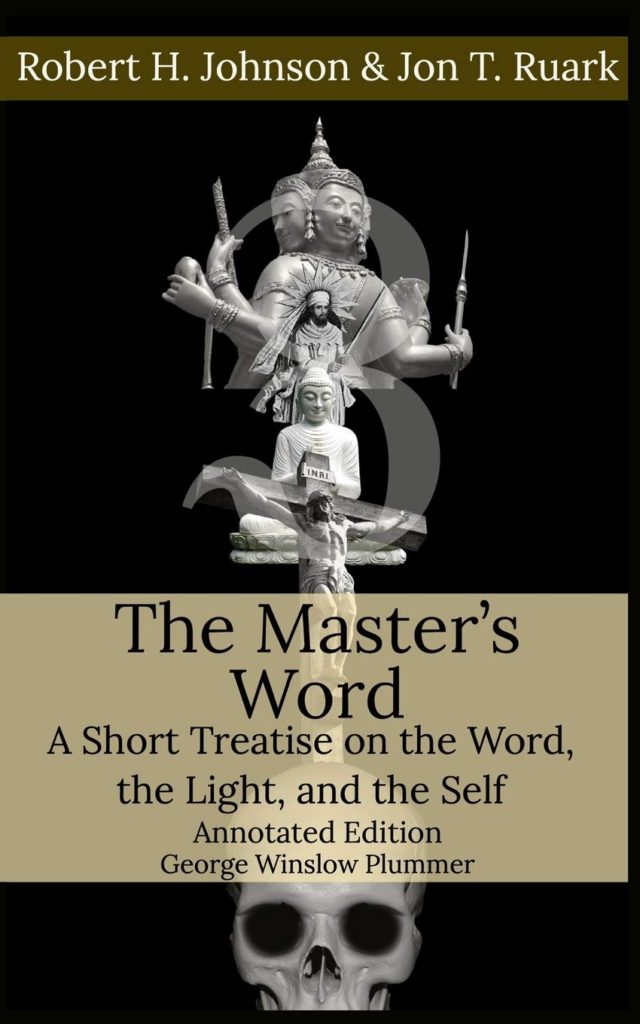Seekers of spiritual light and the casual reader alike will find tremendous value in the annotated edition of The Master’s Word: A Short Treatise on the Word, the Light, and the Self, which is compiled, annotated, and edited by Robert H. Johnson and Jon T. Ruark. The original publication written in 1913 by George Winslow Plummer opens the mind to unique perspectives of human existence and the reason for simply being. In doing so, Plummer provides insight that nearly forces the reader to consider the “then” current world-view experience into a more historical, objective light that transcends all specific religions by examining the most significant concepts of life and what it means to live. Over time however, some of the language and ideas contained therein have become fallacious or lost on the contemporary audience while others are still as true now as they were then; hence, the value of this 2021 edition by Johnson and Ruark.
There are two significant additions that lend well to the success of this new edition: the footnotes throughout the treatise and the epilogue. The former is used as necessary to add depth and understanding to words, concepts, and phrases throughout Plummer’s early opus magnum. These footnotes are used for terrific effect. This reviewer would suggest that The Master’s Word is sought out by a smaller, more specific audience that is on a perpetual pilgrimage for more spiritual “light.” However, Johnson and Ruark’s insight throughout cuts through the mental grind of reconciling Plummer’s concepts with a modern perspective. They offer the meaning and definition behind Plummer’s assertions, as well as the contemporary philosophies that are widely accepted today. This goes a long way in bridging over a century’s worth of changes in world-view concepts that challenge the status quo of religious thought. In doing so, they opened this current work to a whole new audience. Not only to those specifically in pursuit of spiritual “light” that Plummer’s concepts are appealing to, but perhaps to the casual reader who is simply just trying to expand their own knowledge foundation.
The second addition that this reviewer finds particularly value in is the epilogue. This important element is instrumental because it reads more like a comprehensive review of Plummer’s work itself, as well as providing biographical information that is relevant to place the original work in its proper context. This may not be necessary for the astute student of Rosicrucianism, but the general reader almost needs this information to bring clarity to all the concepts Plummer introduces. That is the beauty and appeal of this new edited version and why it will reach a larger audience that may not necessarily be seeking anything specific, but a nice, informative read that will expand their own knowledge and wisdom.
Johnson and Ruark have, indeed, found success and appeal in their edited version of The Master’s Word: A Short Treatise on the Word, the Light, and the Self. They successfully interjected informative insight throughout Plummer’s work and brought it all together with a pleasant summation in the epilogue. Readers will surely not want to miss the opportunity to seek “light” in this important work.
Mike Johnson
Deputy Grand Master of Kansas

